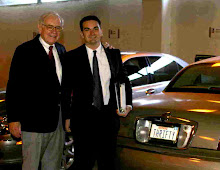Debt-financed Dividends Part III
Let us review when levering a company makes sense and why. Debt is good because it allows firms to do more with the same amount of equity capital. However, the argument has also been made that debt can be better than equity since it provides a tax shield (through the deductibility of interest payments) that equity does not. But unlike equity financing, debt must be reliably serviced through regular interest payments, else the firm will find itself in bankruptcy. So to rely too heavily on debt generally puts the firm in a very precarious situation, which consequently hurts the firm’s credit rating and raises its cost of debt. Theory therefore suggests that, at some point, management should find an elusive “optimal” capital structure, since debt has both benefits and drawbacks.
Hopefully the paragraph above illustrates that the benefit of debt is in the capital that it raises. A dividend-recap raises no capital, it merely alters the debt-to-equity ratio (same assets, more debt -> less equity). The stock will be worth less because of the lower total equity, but the shareholder will also have the dividend in his pocket. So in a world of no taxes, this would have no effect on value (this follows from Modigliani and Miller 1958). As a value investor, value is my main criterion, not earnings, share price appreciation or any combination of the two.
But in a world of taxes, two things happen; a) the company gets a tax savings from the service of its debt over years to come and b) the individual must pay personal income taxes on the dividend now which could otherwise be deferred indefinitely. Unfortunately, so long as the corporate tax rate is the same as the personal tax rate, the cost of b) will always be larger than the cost of a) because of the time value of money.
So it seems the proponents of dividend recaps are relying on the higher returns to shareholders that the new capital structure will generate to sell the idea. By “returns to shareholders” I presume they mean return on equity, and to look at return on equity in isolation is meaningless, since it can easily be manipulated by simply boosting the level of debt. What an investor should be concerned about is return on invested capital, and as we have seen the amount of total capital does not change. However, as I mentioned in Part II, the cost of this capital may fall. In fact, it must fall if management is not making a value-destroying decision.
Thus, the primary indicator of whether the dividend-recap creates value is whether the time value of money consequence mentioned above outweighs a reduction to the firm’s annual cost of capital. I surmise that this difference is minimal anyway, suggesting that the whole thing is a really just a wash.
So why undertake it? Well Scotts Miracle-Gro (SMG) recently paid a fully debt-financed special dividend of $8. But guess who got cut the biggest check. CEO and Chairman Jim Hagedorn, who owns 21 million shares and 31% of the company, ended up receiving $168 million from this transaction. Or how about Health Management Associates (HMA) which paid a $10 special dividend on March 2, representing nearly half of the firm’s market cap. Chairman William Schoen owns 13.5 million shares and 6% of his company and got an easy $135 million paycheck. Don’t misunderstand, though. I have no objection to these people’s wealth and proportional sharing in corporate distributions. But given the financial meaninglessness of the transaction, I cannot help but be a little skeptical.
By conducting the dividend recap, these individuals were able to get a huge payday while not receiving any “compensation” from the company. Similarly, they were not forced to sacrifice any controlling interest they may have had as they would if they had simply sold shares. Finally, they were able to diversify their wealth some without triggering an insider sales filing, which may be seen as a negative signal by the market, lowering the value of their remaining shares. So there are plenty of positives for these insiders that are not applicable to the ordinary individual shareholder.
FD: I have no position in any company mentioned in this post.


5 Comments:
You summed it up well in your final paragraph. I really enjoyed this series.
By Parkite, at 28 March, 2007 20:08
Parkite, at 28 March, 2007 20:08
Very nice story,Warren is really amaster.If you got debt you can visit Debt Eliminator
By Naveen, at 29 March, 2007 06:33
Naveen, at 29 March, 2007 06:33
Good blog post...another reason a company levers up to pay a dividend is to make themselves less attractive to a buyout shop. Kind of a perverse logic but true nonetheless.
By TJF, at 16 April, 2007 05:30
TJF, at 16 April, 2007 05:30
I'm skeptical, too. But I do think there is another reason. While returning the cash to shareholders, who shouldn't care (in a tax-free world) if the company has the money or if they do doesn't matter, what the the dividend payout does is allows the price of the security to rise again, as the Return on Equity calculation is now proceeding from lower equity. So since the price of the security is a large concern, and retail investors are driven to pursue companies with high ROEs, payng the dividend lets you have your cake (as a large shareholder with special dividend) and eat it too (as a security that will outperform the market due to its newly freed-to-grow ROE.)
BUT: I've only been at the investing game for about a year or two, so I'm sure there must be more to it than this.
By Unknown, at 23 April, 2007 04:58
Unknown, at 23 April, 2007 04:58
Thanks, appreciated...nice post
By Unknown, at 03 August, 2007 19:57
Unknown, at 03 August, 2007 19:57
Post a Comment
<< Home